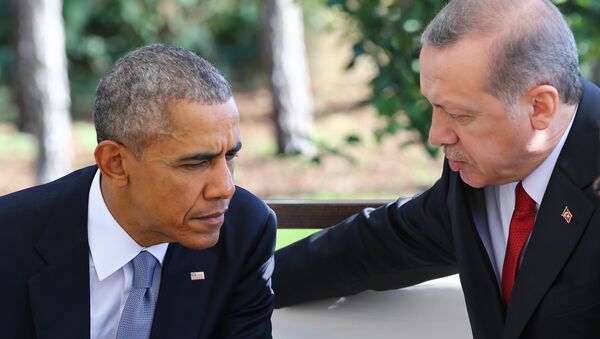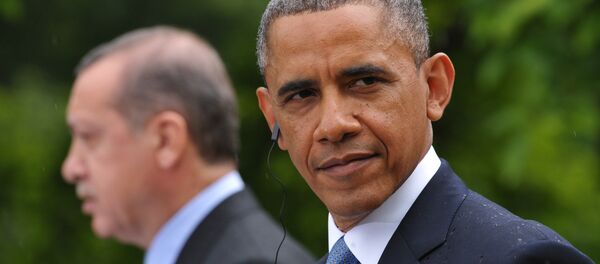Meanwhile, there are many factors impeding this process, first of all, the difference in position between Turkey and the United States on the Syrian Kurds and the YPG defense forces.
“America currently continues to follow a strategy of maintaining the balance of forces in the region, despite the fact that to do so it is becoming increasingly difficult. On the one hand, we hear quite sharp criticism of Washington aimed at Ankara on issues such as violation of citizens' rights, freedom of speech and press,” Idiz said.
Talking about how the US cannot lose Turkey as a strategic partner, the analyst said that considering the present circumstances where Syrian authorities have such forces as Russia, Iran and Hezbollah on their side, the US cannot afford to lose Turkey.
Meanwhile, between the official Damascus and Rojave, the area where most of the Kurds reside, it is possible that convergence will occur. “The peculiarity of the present moment is complete unpredictability. It is impossible to predict who will create a union against a common enemy. However, if the center of stability forms and one of them is controlled by the Kurds, neither America, Russia nor Europe would want to give up maintaining allied relations with it. In this case, Turkey will have to build its policy taking into account this factor,” the analyst pointed out.
“As for America's criticism of the anti-democratic internal policy of Ankara, I think that it will continue in the future. Moreover, Obama's statement, in which he openly spoke about the unacceptability of the actions of the Turkish authorities that violate freedom of expression in the country, is likely to entail an even greater wave of criticism from Europe,” Idiz said.
The pressure on the Turkish government in this regard will continue, both outside and inside. Inside the country there is also increasing dissatisfaction with the policy guidance, “especially in regard to the legal proceedings against Jan Erdem Dündar and Gul,” the analyst concluded.




